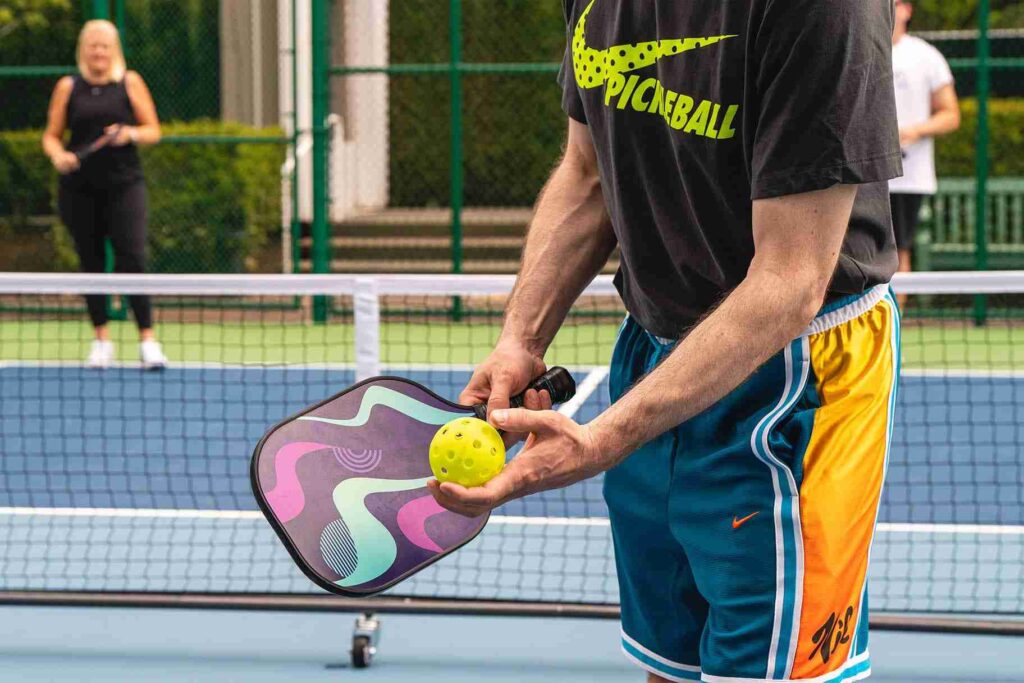Physical Address
304 North Cardinal St.
Dorchester Center, MA 02124
Physical Address
304 North Cardinal St.
Dorchester Center, MA 02124

Pickleball is a fun and fast-paced sport, but it can leave your muscles feeling sore and stiff if you don’t take the time to properly recover. Whether you’ve just played a casual game or an intense match, taking care of your body post-game is key to staying injury-free and feeling fresh for your next game. In this guide, we’ll explore the best cool-down routines, stretching exercises, and recovery tips to help you bounce back after every pickleball match.

After an intense pickleball game, it’s important to gradually bring your heart rate down. Rather than stopping abruptly, spend 5-10 minutes engaging in light activity. This could include:
This process helps your body return to a resting state, prevents blood from pooling in your muscles, and reduces the chances of feeling dizzy or lightheaded.
Why it matters: A proper cool-down flushes out lactic acid from your muscles, helping to reduce post-game soreness.
Dynamic stretching involves active movements that gently stretch your muscles through a range of motion. These stretches help loosen up your body after playing pickleball without placing too much strain on fatigued muscles. Here are a few dynamic stretches to try:
Why it matters: Dynamic stretching after a game keeps your muscles moving, promoting flexibility and reducing muscle tightness.
After a dynamic cool-down, you can move into static stretching. Static stretches are performed by holding a position for 20-30 seconds to lengthen the muscles. This is especially important for pickleball players, as the sport involves a lot of lateral movement and quick pivots. Focus on the following key areas:
Why it matters: Static stretching after a game helps lengthen muscles that may have tightened during play, preventing stiffness and promoting flexibility.
Hydration is often overlooked, but it plays a crucial role in recovery. After a pickleball game, especially if it’s been warm or intense, your body loses water and electrolytes through sweat. Be sure to:
Why it matters: Proper hydration and nutrition after playing pickleball speed up recovery and reduce muscle cramps and fatigue.
Foam rolling is an excellent tool for releasing muscle tension and knots. Rolling out your muscles can help improve circulation, reduce soreness, and prevent the buildup of tightness. Key areas to target include:
Why it matters: Foam rolling helps break up muscle adhesions and speeds up recovery by improving blood flow to the muscles.
If you’re feeling particularly sore after a game, a gentle massage can work wonders. Whether you go for a professional sports massage or simply use a massage tool at home, massaging tight areas helps:
A post-game massage can also help flush out toxins that accumulate in your muscles during exercise, further enhancing recovery.
Why it matters: Massages are an excellent way to relax your muscles, release tension, and prepare your body for the next game.
Finally, make sure to allow your body enough time to recover before your next pickleball match. Rest is one of the most important components of recovery, as it gives your muscles time to repair and strengthen after being worked out. Be sure to:
Why it matters: Proper rest prevents injuries caused by overuse and ensures you return to the court feeling refreshed and ready to play.
Final Thoughts
Recovery after a pickleball game is just as important as playing the game itself. Incorporating cool-down exercises, proper stretching, hydration, and rest will help your muscles recover faster, prevent injuries, and ensure you’re ready for your next match. By taking care of your body, you’ll not only feel better but also improve your performance on the court in the long run.